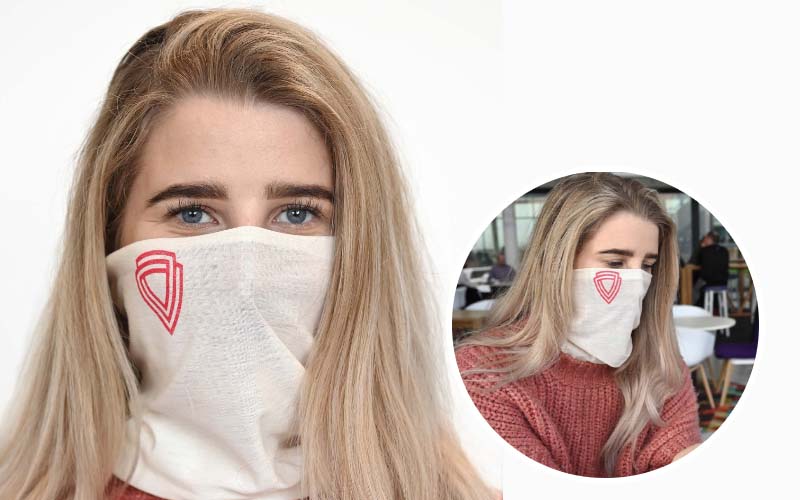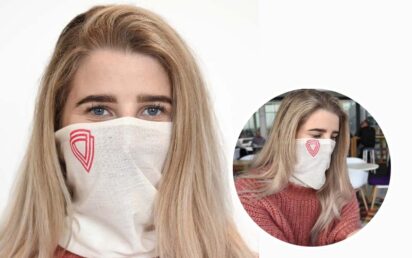A 10-year research and development project by UK biochemists is to be sped up to produce ‘germ trap’ snoods in response to the coronavirus outbreak.
Inventor Paul Hope said that material treated with the new coating offers “96% protection against airborne viruses” and is applied to a snood in place of a traditional face mask.
His BioTech firm Virustatic said its tests suggest the material is effective against a range of pathogens including coronavirus, flu, SARS, MERS and the common cold.
The World Health Organisation advises that healthy people only need to wear protective masks when taking care of a person with suspected COVID-19 infection, or if coughing and sneezing.
Virustatic’s snood, ‘Shield’, is only effective in controlling the spread of germs when used alongside a strict personal hygiene routine, as explained by health officials.
Hope said: “I’m concerned that the biggest provider of viruses, the people you are treating, can’t wear existing masks. Issues with breathability mean you can’t put a mask on them. If they could, that would reduce the virus within the hospital environment.”
Manchester University coined the term “germ trap” to describe the antiviral properties of the Virustatic protein coating.
To protect consumers against copies, the firm said it will fit masks with an anti-fake security label, with heat-activated ink, invisible UV features and an encrypted QR code.
UPDATE: Manchester University says it is aware of the Virustatic Shield but do not endorse the product in any way. Hence we have amended the reference to university’s role in the 10-year research project


